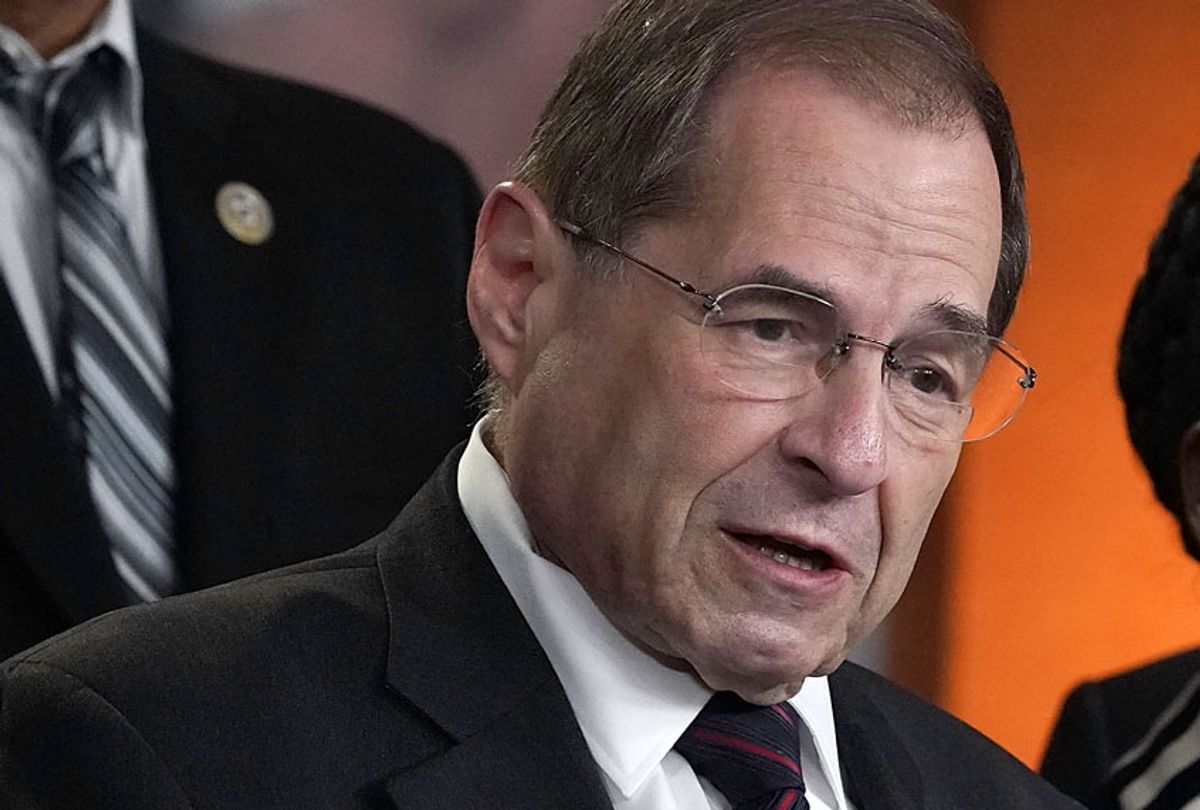House Judiciary Chairman Jerry Nadler said Tuesday that he believes President Donald Trump should have been charged for his conduct as described in special counsel Robert Mueller's report into Russian interference in the 2016 presidential election.
"I believe that each of these incidents, documented in detail in the Mueller report, constitutes a crime," Nadler, D-N.Y., said. "But for the Department of Justice's policy of refusing to indict a sitting President, I believe he would have been charged with these crimes."
Nadler's comments came at the beginning of a scheduled hearing that was originally expected to feature testimony from former White House counsel Don McGahn. But on Monday, McGahn, a key witness in Mueller's investigation into obstruction of justice by the president, said he would not appear before the committee after the White House directed him not to testify.
The New York Democrat then accused Trump of witness intimidation and threatened legal action to enforce his panel's subpoena for public testimony from McGahn.
"He took to Twitter to call Mr. McGahn a liar. His lawyers went on television to do the same," Nadler said at the hearing, which featured an empty witness chair to symbolize McGahn's absence. "In short, the president took it upon himself to intimidate a witness who has a legal obligation to be here today. This conduct is not remotely acceptable."
"We will not allow the president to prevent the American people from hearing from this witness. We will not allow the president to block congressional subpoenas, putting himself and his allies above the law. We will not allow the president to stop this investigation, and nothing in these unjustified and unjustifiable legal attacks will stop us from pressing forward with our work on behalf of the American people," Nadler continued. "We will hold this president accountable, one way or the other."
Nadler said Monday that he plans to hold McGahn in contempt for defying the panel's request.
Tuesday's hearing was the second time this month that Nadler gaveled in to an empty witness chair. The first witness who did not show up for his scheduled hearing, Attorney General William Barr, was later voted by the committee to be held in contempt for refusing to comply with a subpoena to provide lawmakers with an unredacted version of Mueller's report.
Since the Democrats seized control of the House of Representatives in January, current and former Trump administration officials have faced a barrage of subpoenas, demands to testify before a host of congressional panels and letters seeking a flurry of documents. But the White House has often ignored congressional requests for documents and witnesses, claiming that the demands are an unconstitutional infringement on the president's powers. Democrats, meanwhile, have accused the Trump administration of stonewalling or flat-out ignoring their requests for documents and information.
The executive branch's attempts to push back against congressional inquiries targeting the White House have led a growing number of Democrats to contemplate new ways to compel current and former West Wing aides to acquiesce to their demands, including heightening calls to open impeachment proceedings against the president.
Shortly after Tuesday's hearing, Judiciary Committee vice chair Rep. Mary Gay Scanlon, D-Pa., joined the chorus of Democrats calling for Trump's impeachment, declaring that "it's time to start an impeachment inquiry."
But other party leaders, including House Speaker Nancy Pelosi, D-Calif., have repeatedly pushed back against launching impeachment proceedings and have stood by their decision to take a slower approach.
The Democrats reportedly clashed on the matter during several closed-door meetings on Monday night.
Pelosi on Tuesday appeared to downplay reports of growing inter-caucus tensions over impeaching Trump. Asked during a press conference if she was "under increased pressure to impeach the president from [her] caucus," she reportedly said merely, "no."



Shares